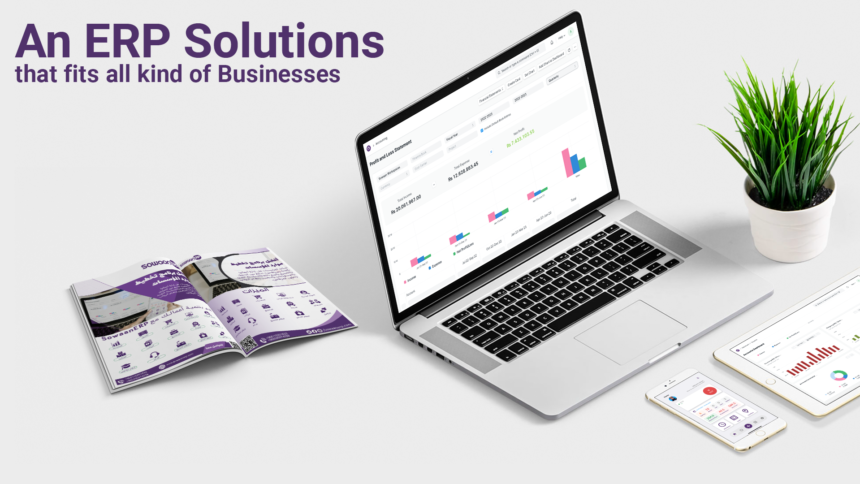Enterprise Resource Planning software solution boosts efficiency and enhances the performance of businesses. The erp in saudi simplifies and centralizes processes across different departments, while providing real-time information sharing, and making decisions.
What Is ERP?
ERP software is designed to oversee a company’s primary tasks and streamline key processes. Traditionally, departments within an organization use distinct systems to oversee their operations. HR would use its own system, accounting would have had its software, and sales would have its tools. This created data siloing, inefficiency, and insufficient visibility across the business.
ERP is a central system that allows information to be exchanged and accessible across every department. This enables the following:
- Real-time transparency: The Cost effective ERP solution in Saudi Arabi helps to make informed decisions using real time data.
- Automatization: ERP automates repetitive tasks that allows employees to focus on new tasks.
- Consistency of data: All departments have access to identical information that increases collaboration and reduces confusion.
Key Components of ERP Systems
ERP systems are generally modular, meaning businesses can select the elements most suitable to their requirements. Some common modules include:
- Financial Management: The module handles all finance and accounting-related tasks such as general ledger accounting, budgeting of receivables and payables along with tax and accounting management. It is accountable for the correctness of financial data and for compliance with the law.
- HR module is responsible for employee information which includes hiring reviews of payroll as well as performance evaluations and benefits administration. It assists businesses in monitoring their employees’ performance and making sure that they are in compliance with the law on labor.
- Marketing and sales: This module handles customer relations advertising campaigns and sales and customer services processes. It allows companies to keep a continuous relationship with their customers and to optimize their selling processes.
- Production and Manufacturing for companies which work in the manufacturing industry. This module helps with planning production, monitoring work-in progress as well as managing production schedules and controlling quality control.
- Inventory Management: This program monitors levels of inventory, sales deliveries and orders. It makes sure the levels of inventory are correctly controlled, which can benefit avoid shortages of inventory and stockouts.
- Customer Relationship Management (CRM): The CRM module allows businesses to manage interactions by examining the needs of customers and their sales pipelines, their preferred sales channels and customer service inquiries.
How ERP Can Help Businesses
Implementing an ERP system may benefit companies of any size and across all sectors. Here are a few of the most important ways ERP can benefit companies:
Better Collaboration
ERP systems help break down silos of data which allows departments to work more effectively. Since everyone has access to the exact information, It is easier for teams to work together on projects and exchange information.
For example, finance and sales teams could use the same system to monitor customer payments and sales orders. This means there is no necessity for manual data transfers between departments and lowers the chance of miscommunications or data mismatches.
Scalability
ERP systems are extremely adaptable, which makes them perfect for all businesses. When a company expands, the ERP system may grow along with it. Adding new modules makes supporting more processes, departments, or even places possible.
This allows businesses to warrant that they aren’t overwhelmed by their ERP system during expansion. If a business is opening more offices or creating new products, the ERP system will accommodate its growth and adjust to the changing requirements of the business.
Cost Reduction
While implementing an ERP system will require an initial investment, the cost savings could be substantial. By streamlining processes and automating processes, ERP systems reduce operational expenses. For example, companies can cut costs on inventory by ensuring that stock levels are optimal and reducing waste. Automation also eliminates the need for paper-based procedures and can result in further cost savings.
Furthermore, ERP systems benefit businesses by finding areas of inefficiency and waste, which allows them to make cost-effective choices. Access to the latest information on the utilization of resources, expenditures, and the performance of suppliers helps companies cut down on unnecessary expenses.
Data Security
The latest ERP systems impart solid security measures for data, including encryption, access controls based on roles, and regular data backups. All data is stored in a central database, which makes it simpler to track access to the data and ensure that business data is secure.
With an ERP platform, companies can ensure that only authorized employees are granted access to certain information. This saves them from unauthorized access, and issues related to data security regulations.
How to Choose the Right ERP System
Here are some important things to take into consideration when deciding on the best ERP solution:
- Industry-specific attributes: Certain ERP systems are geared to particular industries, such as manufacturing, retail, and healthcare. Selecting a system with specific industry features can greatly boost your ERP’s effectiveness.
- Modification as well as Flexibility: Businesses should search for an ERP solution modified to meet their specific requirements. The system must allow sufficient change with the changing business processes and expansion.
- Cloud in comparison to. On-premise: ERP systems based on the cloud have the advantage of the ability to access remote data and raise scalability as well. On-premise systems provide greater flexibility over infrastructure. When choosing alternatives, businesses must consider their IT capabilities, budget, and future requirements.
- Support and Training from the Vendor: ERP implementations isn’t easy, so selecting the right vendor who provides top support and training tools is essential. This will ensure it’s put into place seamlessly and that employees are educated to utilize it.
Conclusion
ERP systems can be useful for companies seeking ways to increase efficiency, boost decision-making and cut expenses. By centralizing and automating crucial processes, ERP systems benefit organizations to improve efficiency and fulfil their goals. Whether it’s enhancing collaboration, ensuring compliance with regulatory requirements, or delivering superior services to customers, ERP solutions focus on providing a myriad of advantages that help companies remain ahead of the competition in today’s ever-changing environment.








